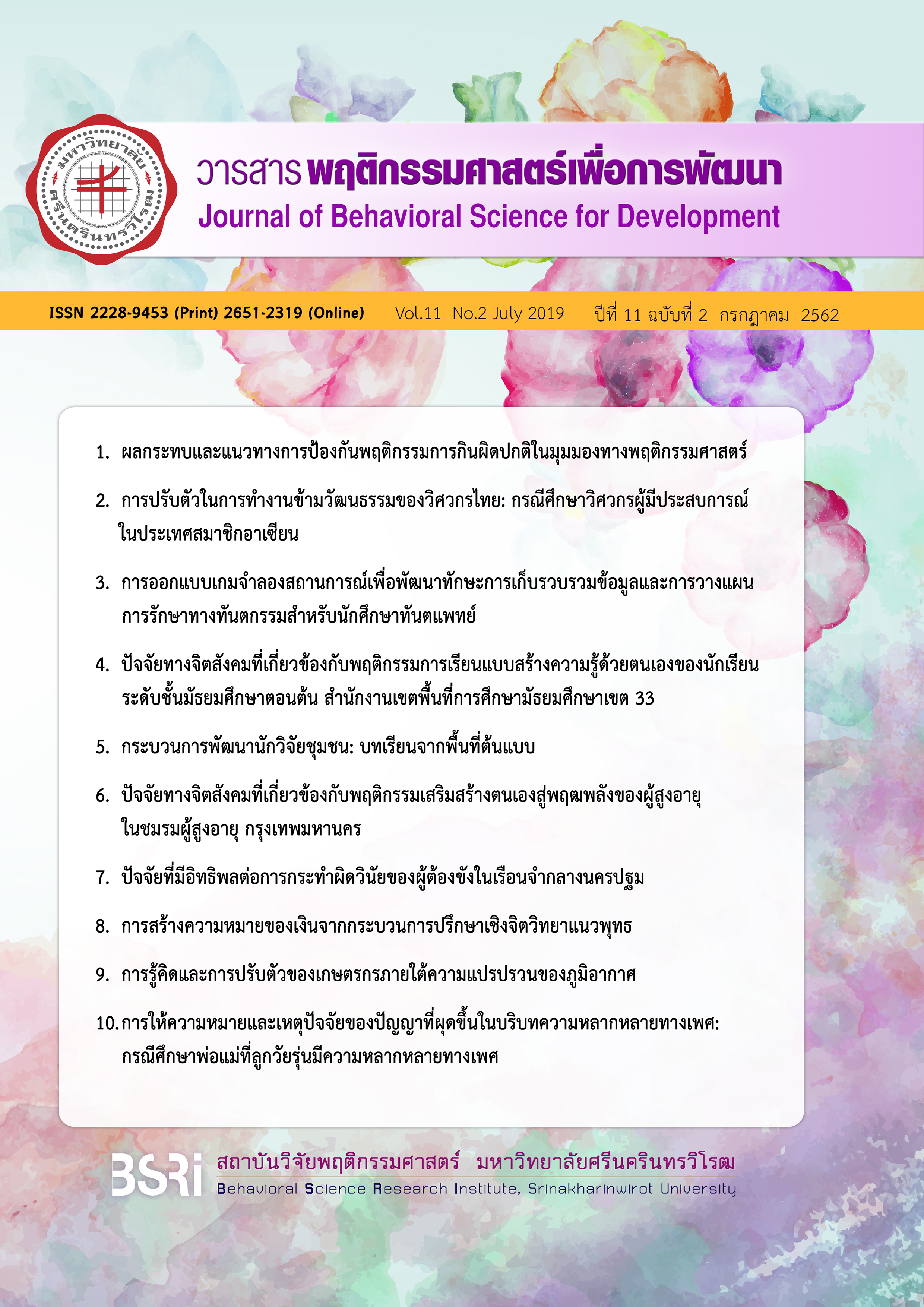Psychosocial Factors Related to Learning Behaviors By Constructionism of Students in the Secondary Educational Service Area, Office 33
Keywords:
learning behaviors, constructionism, psychosocial factor, self-learning habitsAbstract
At present, education in the 21st century emphasizes learners to have learning skills. Therefore, learning behaviors by constructionism is important. The purposes of this comparative correlational research was to investigate the prediction power of factors in learning behaviors by constructionism in terms of the psychological and social factors. The samples consisted of four hundred and five students who studied in the Secondary School of the Secondary Educational Service Area, Office 33. There were nine research instruments, in the form of summated rating scales. The reliability with the alpha coefficients was between .85 to .96. The data was analyzed and presented using descriptive statistics and stepwise multiple regression analysis. The research findings was: The stepwise Multiple Regression Analysis solution illustrated the important factors and predictions for learning behaviors by constructionism at 52.4% by the self-learning habits, positive attitudes towards learning behaviors by constructionism and relationship with friends with a beta of .532, .170 and .099; respectively, (p<.05). The results from this study can shed the light on the development at students for learning behaviors by constructionism and can be a basis for further research.



